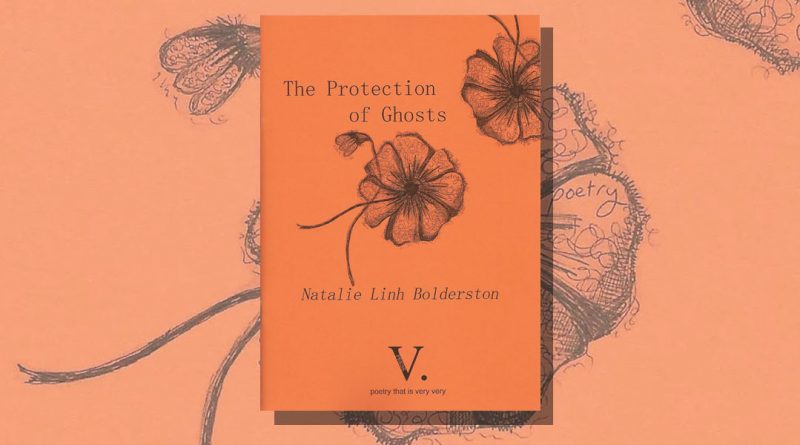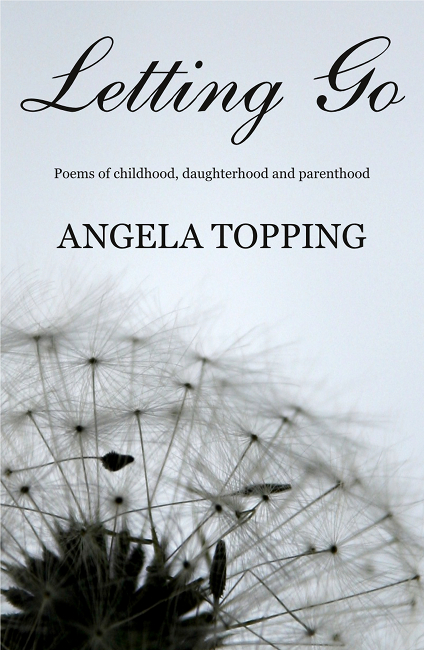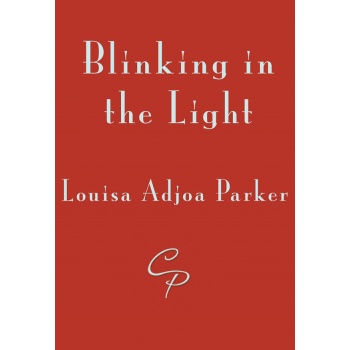The Protection of Ghosts by Natalie Linh Bolderston
-Reviewed by Emma Lee-
The Protection of Ghosts links past and present, exploring intergenerational trauma, particularly along the maternal line. One poem, ‘Operation Ranch Hand’, takes its title from the codename for a chemical warfare campaign during the Vietnam War by the Americans,
She does not know about the scar
that is forming inside, that her daughter
will be born wordless on a stretcher.
That she will carry the smell
of dead leaves on her skin,
her name already cremated.Her house shakes on a stack of bones
as she realises that pain is a man in a mask
who will tread her ribs like a railroad,
string up her arms and call her hunted.
The atrocities of war do not just affect the present but also the future. The half rhymes, particularly in the opening lines, create an echoing effect radiating out from a centre. She might survive, but she will not do so unscarred. The poem does not make it explicit whether the woman survives, but the poem follows a sequence, ‘Divinations on Survival’. One divination is ‘Sŭn [diminishing] 41’
49 days since I tasted pork & you left for Saigon.
how hunger coppers my mouth has it been
so long since I found my- self unmothered. I learn
to avoid the last pig I can’t kill. the days
swarm like flies scaling my stomach. I smoke,
I swallow my name & nothing else when I hear soldiers
The stanza title borrows its name and number from an I-Ching hexagram. The stanza can be read from the first line downwards, reading left to right, or the bottom line upwards still reading left to right. It does not use the repetition of the specular. Reading both ways changes the central question, “has it been/ so long since I found my-self unmothered” to “has it been 49 days since I tasted pork & you left for Saigon” yet both readings contain the sense of abandonment and lack of nurture.
The mother and daughter link is explored again in ‘My mother’s nightmares’, a prose poem,
my mother reaches, but cannot keep me on the ground. She grows smaller, our hands cannot touch, and I do not know whether I am rising or she is falling –
It continues
I come to her in the dark, ask her to show me she’s alive, that her hands are still part of her body. We both know there are some things we can only consider with our eyes closed.
I watch her on her knees at the shrine, face clenched against continuing.
After, she holds my body like a wreck of wood, traces names on skin. I imagine what is implied –
Darling, you were fleshed
from a war and a cold block of flats,
but I love you anyway.She washes the sweat out of our hair.
The daughter is too young to have direct experience of war yet shares her mother’s nightmares. The mother understands her daughter’s trauma but seeks to understand and support rather than blame or dismiss her daughter’s fears.
In ‘Questions for My Mother’, her mother’s status as refugee is probed, particularly the question of where her mother belongs, in part iii
You wonder whether anyone would have wanted you more
if you were your photograph: sixteen, red-lipped, pale-skinned,
yellow-bloused, a Miss Saigon dream.Do they not see that you are beautiful
in nurse’s blue, hand chapped and muscular from days
of bedbaths and tourniquets?
In part iv.
These days, you pick up a book, bathe in verbs,
wash the sun off your shoulders. Snow falls
on your flip-flopped feet when you walk to class.
You wonder if you will missthe chill if you ever go back – is it still home?
Or the place that chased you out?She tells. She tells of upturned drawers, white pyjamas. Buying baby milk on the black market, because she was sorry her youngest sisters were born on the smoking tail of their wealth. Her father’s cigarettes, his shaking fingers, the South’s president showing apologetic palms on TV. Stealing strawberries on the way home from school, before she ever needed to. Lining their clothes with the family gold and hoping no one would notice their heavy walk. A white van, a brown bag. A boat, already cracking with a warning: GoBackGoBackGoBack.
Does her mother consider the UK or Vietnam as home? How does she respond to the racist chant “go back” when the war-torn country she left has long stopped being home?
The Protection of Ghosts is deceptively slender; the poems within carry more heft than the size of the pamphlet suggests. Every poem crafted to bear being read more than once and each reading yields a new discovery.





